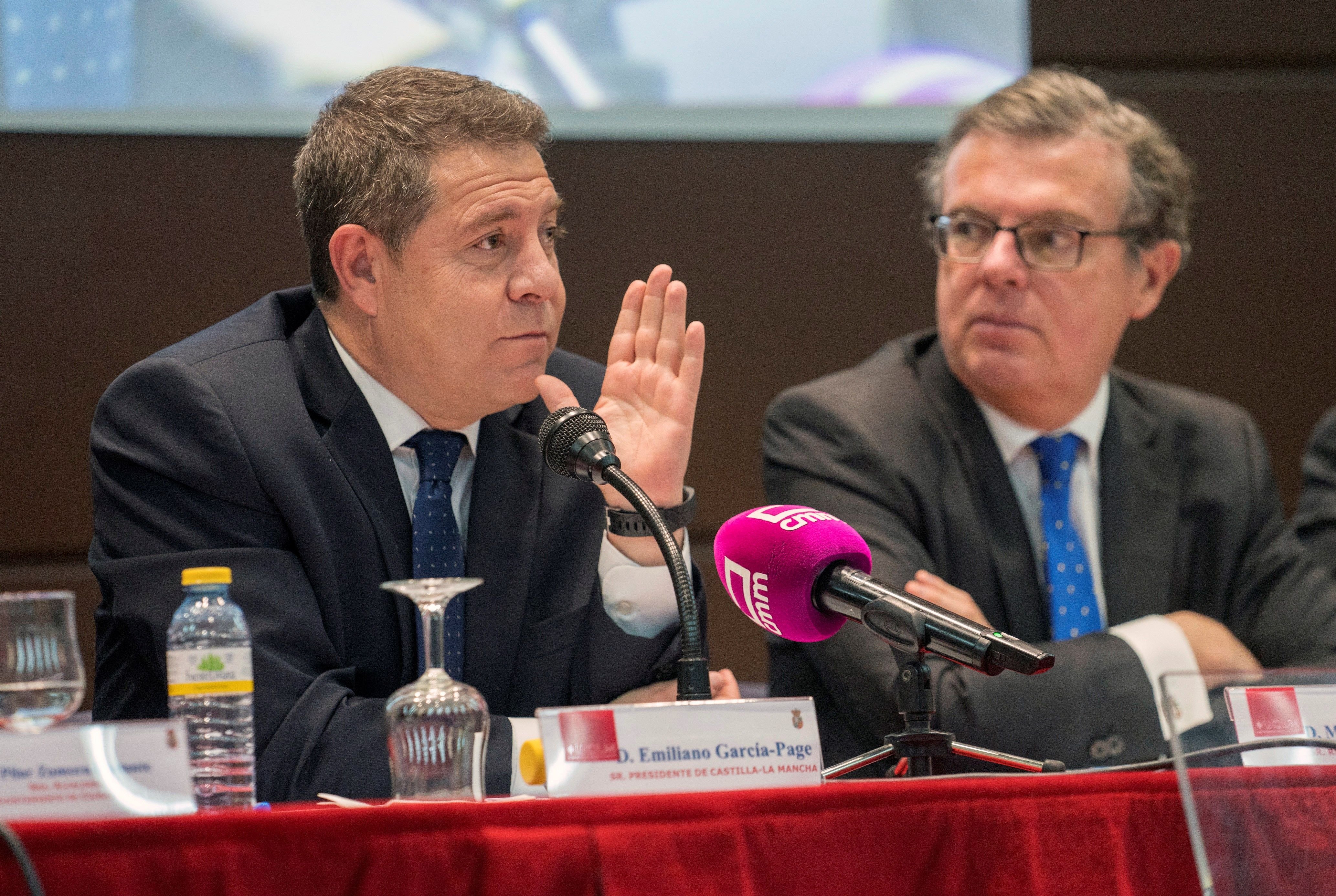He is the president of the autonomous community of Castilla-La Mancha, one of the Spanish regions which make up the Castilian 'heartland'. And he has also become one of the most prominent defenders of the Castilian language - also known as Spanish. Emiliano García-Page, of the Socialist (PSOE) party even goes beyond the provisions of the Spanish Constitution in his efforts to consolidate the dominance of this language over the other Iberian languages spoken in the Spanish state - Catalan, Basque, Galician and a handful of others. If a few days ago he criticized the Catalan vice-president, Pere Aragonès, for speaking English to the president of the European Commission, Ursula von der Leyen, he now returns to the topic, to share the view that he and all his fellow citizens have an "obligation" to speak Castilian, although it's nowhere to be found in the country's constitution.
In an interview on Spanish public station Canal 24 Horas, Page, who leads one of the few Spanish autonomous communities that are, at least by official definitions, entirely monolingual, could not avoid commenting on the Catalan educational model, and the reforms recently designed by the Spanish government which would see Castilian no longer defined as a vehicular language. He also threw out the dubious claims that more Castilian is learned in parts of the world such as Japan or China than "in some places in Spain", in a veiled reference to Catalonia.
Linguistic supremacism
Continuing on the same issue with another example - the fact that Castilian is the second language in teaching in Brazil - he proclaimed his support for the "initial model" of the Spanish constitution, but with a small personal adjustment to its text, under which Castilian "is official throughout Spain and everyone has the right and obligation to speak it" - a version which does not quite match article 3.1 of the constitution: "Castilian is the official Spanish language of the state. All Spaniards have the duty to know it and the right to use it". The real text says all Spanish passport holders must know the language, but it does not oblige them to speak it, although it is still sufficient to act as the basis of the linguistic supremacism that favours Castilian.
Building on his constitutional misunderstanding, Page assures that there is a need to guarantee "the rights of the others, of those who never speak Catalan", and after joking that he himself does not speak the Catalan language "either in public or in private", he expressed his desire to be able to go to Catalonia and "read the signs in Castilian".
To put it another way, he declared himself in favour of Castilian monolingualism and of a legal obligation of Catalan speakers to be bilingual. Despite this positioning, Page claims that using language "as a weapon or an element of privilege" is a mistake that needs to be corrected. Because, the way he sees it, such privileges do not favour the speakers of one language, Castilian, the only one which is exclusively protected by a Spanish Constitution with clear supremacist overtones.

